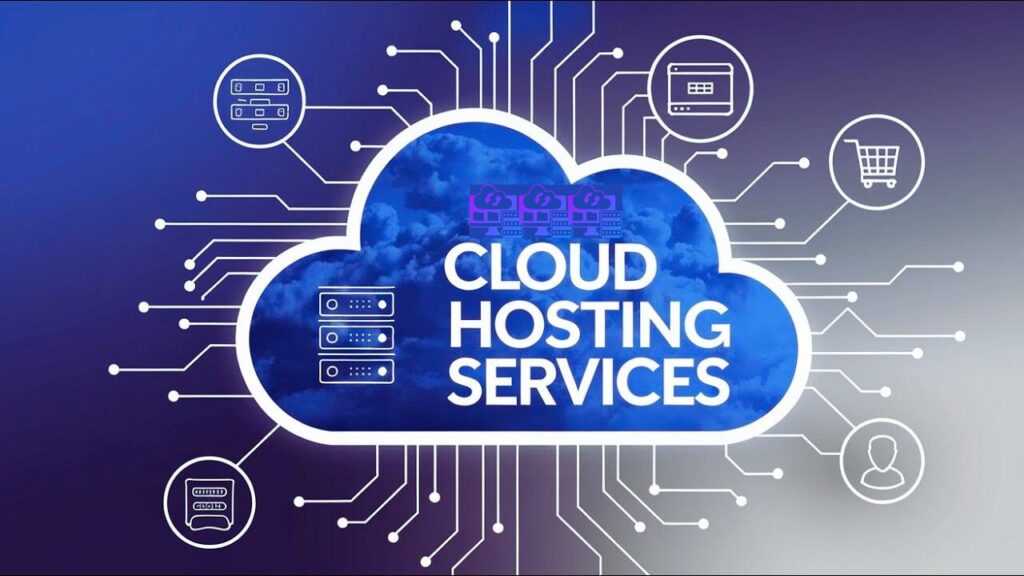Choosing the right cloud hosting provider is essential for your online success. Cloud hosting offers flexibility, scalability, and cost efficiency.
In today’s digital age, businesses and individuals need reliable hosting solutions. Cloud hosting providers offer various services tailored to meet diverse needs. They provide robust infrastructure, ensuring your website or application runs smoothly. With a plethora of options available, finding the right provider can be overwhelming.
Each provider brings unique features and benefits to the table. Understanding what to look for in a cloud hosting provider is crucial. This guide will help you navigate the options and make an informed choice. Ready to dive into the world of cloud hosting? Let’s get started.

Introduction To Cloud Hosting Provider
Cloud hosting is a modern way to manage your website. It uses many servers to balance the load and maximize uptime. This means your website can handle more traffic. It also means fewer issues with downtime.
Let’s explore what cloud hosting is and its benefits.
What Is Cloud Hosting?
Cloud hosting uses multiple servers to host your website. Unlike traditional hosting, it does not rely on a single server. If one server fails, another takes over. This ensures your website stays up and running.
Each server in the cloud shares the load. This means faster load times for your visitors. It also means better performance for your website.
Benefits Of Cloud Hosting
Cloud hosting offers many benefits. Here are some key advantages:
- Scalability: Easily adjust resources as your website grows. No need to switch servers.
- Reliability: Multiple servers mean fewer outages and better uptime.
- Performance: Faster load times due to shared server resources.
- Cost-Effectiveness: Pay only for what you use. No need for extra hardware.
- Security: Cloud providers offer robust security features to protect your data.
These benefits make cloud hosting a smart choice for many websites. Whether you run a blog or an online store, cloud hosting can help.

Key Features To Look For
Choosing the right cloud hosting provider is essential for your business. It’s crucial to focus on key features that ensure reliability and efficiency. Here are some important features you should consider.
Scalability
Scalability is a fundamental feature of cloud hosting. Your provider should offer resources that can grow with your business needs.
- Ability to add or remove resources easily
- Support for sudden traffic spikes
- Flexible pricing plans
These elements ensure your website handles increased traffic smoothly. They also help you manage costs effectively.
Performance
Performance is critical for user experience. A good cloud hosting provider should guarantee high performance.
| Feature | Details |
| High Uptime | 99.9% uptime or higher |
| Fast Load Times | Low latency and quick response |
| Reliable Infrastructure | State-of-the-art data centers |
These factors ensure your website runs efficiently. This keeps users satisfied and engaged.
Security
Security is paramount in cloud hosting. Protecting your data and that of your users is essential.
- Data Encryption
- Regular Backups
- Firewalls and DDoS Protection
- Compliance with Industry Standards
These features provide a secure environment for your website. They help prevent data breaches and ensure compliance.
Top Cloud Hosting Providers
Choosing the right cloud hosting provider can be challenging. Each has unique strengths. In this section, we will explore the top cloud hosting providers. These providers offer reliable services and great features.
Amazon Web Services (aws)
Amazon Web Services, or AWS, is a popular choice. AWS offers a wide range of services. Their global network ensures fast and secure connections. AWS is known for its scalability. Users can easily adjust resources based on their needs. AWS also provides various tools for developers. These tools help in managing and deploying applications efficiently.
Microsoft Azure
Microsoft Azure is another top cloud hosting provider. Azure offers integrated cloud services. This makes it easy to build, deploy, and manage applications. Azure is known for its hybrid cloud solutions. This allows businesses to use both on-site and cloud resources. Azure also supports many programming languages and frameworks. This flexibility benefits developers and businesses alike.
Google Cloud Platform
Google Cloud Platform, or GCP, is a strong contender in cloud hosting. GCP offers powerful data analytics and machine learning tools. This makes it a favorite for data-driven businesses. GCP’s infrastructure is secure and reliable. Businesses can benefit from its global network of data centers. GCP also provides easy-to-use management tools. These tools simplify the deployment and scaling of applications.
Comparing Pricing Models
Choosing the right cloud hosting provider involves understanding different pricing models. Each model has its benefits and drawbacks. This guide helps you compare three popular pricing models.
Pay-as-you-go
Pay-as-You-Go means you only pay for what you use. No upfront fees. No long-term commitment. This model works well for unpredictable workloads. You can scale up or down based on needs. It’s flexible and cost-efficient for many users.
Reserved Instances
Reserved Instances offer lower prices if you commit for a longer term. Usually, one or three years. This model suits stable and predictable workloads. You save money compared to Pay-as-You-Go. But, there is less flexibility. You must pay even if usage drops.
Spot Instances
Spot Instances allow you to bid on unused cloud resources. Prices are lower than Pay-as-You-Go and Reserved Instances. But, availability is not guaranteed. This model is ideal for non-critical tasks. You can save costs but risk sudden interruptions.
Performance And Reliability
Choosing a cloud hosting provider involves more than just price. You need to consider performance and reliability. These two factors ensure your website runs smoothly and stays online. Let’s explore the key aspects that influence performance and reliability.
Uptime Guarantees
Uptime is crucial. It refers to the time your website is online. Most providers offer an uptime guarantee. This means they promise your site will be online for a certain percentage of time. Usually, this ranges from 99.9% to 100%.
An uptime of 99.9% means your site could be down for around 8 hours a year. Look for providers with high uptime guarantees. This ensures your site remains accessible to users.
Load Balancing
Load balancing helps distribute traffic evenly. It ensures no single server gets overwhelmed. This is especially important during high traffic periods.
Load balancing improves performance and reliability. It prevents downtime and keeps your site running smoothly. Look for providers that offer robust load balancing solutions.
Data Redundancy
Data redundancy involves storing your data in multiple locations. This ensures your data is safe even if one server fails. It enhances reliability and ensures data integrity.
Here are some key benefits of data redundancy:
- Prevents data loss
- Ensures data availability
- Improves disaster recovery
Choose a provider that offers strong data redundancy. This ensures your data is always protected.
Security Measures
Choosing a reliable cloud hosting provider often hinges on the security measures they offer. Proper security ensures your data remains safe from breaches and unauthorized access. Let’s delve into the key security features to look for in a cloud hosting provider.
Data Encryption
Data encryption is crucial for safeguarding sensitive information. A good provider will offer end-to-end encryption. This means your data is encrypted both in transit and at rest. Encryption transforms your data into a secure format that only authorized parties can read. It uses keys to lock and unlock the data. These keys are managed securely, ensuring that even if data is intercepted, it remains unreadable.
Compliance Certifications
Compliance certifications demonstrate a provider’s commitment to security standards. Look for certifications such as ISO 27001, HIPAA, and GDPR. These certifications mean the provider follows stringent security practices. They undergo regular audits by independent bodies. Adhering to these standards ensures that your data is handled according to best practices. Below is a table listing some key certifications:
| Certification | Description |
| ISO 27001 | International standard for information security management. |
| HIPAA | Regulations for protecting sensitive patient health information. |
| GDPR | Regulations for data protection and privacy in the EU. |
Identity And Access Management
Identity and Access Management (IAM) is vital for controlling who can access your data. IAM solutions provide tools for user authentication and authorization. This ensures only authorized users can access your resources. Key IAM features include:
- Multi-factor Authentication (MFA): Adds an extra layer of security beyond just passwords.
- Role-Based Access Control (RBAC): Assigns permissions based on user roles.
- Single Sign-On (SSO): Allows users to access multiple applications with one set of login credentials.
These features help in minimizing the risk of unauthorized access. They ensure only the right individuals have access to sensitive information.
Customer Support
When choosing a cloud hosting provider, customer support is vital. Reliable support ensures your website runs smoothly. Let’s explore key aspects of customer support in cloud hosting.
Support Channels
Cloud hosting providers offer various support channels. These include live chat, email, and phone support. Each channel caters to different needs. Live chat is great for quick questions. Email support helps with detailed issues. Phone support is best for urgent problems. Choose a provider that offers multiple channels. This ensures you get help when needed.
Response Times
Response times are crucial in customer support. Fast response times mean quicker issue resolution. Look for providers with 24/7 support. This ensures help is available any time. Check reviews and testimonials. They often highlight response times. Quick responses minimize downtime and keep your site running smoothly.
Expertise
Support teams should have expertise in cloud hosting. This ensures they can solve complex issues. Look for certified support staff. They have the knowledge to assist effectively. Providers often list certifications on their websites. Read customer reviews. They often mention the expertise of the support team. Expert support ensures your issues are resolved quickly.

Case Studies
Case studies provide real-world examples of how cloud hosting benefits businesses. They highlight success stories and solutions for various companies. This section covers small businesses and enterprise-level solutions.
Small Business Success Stories
Small businesses often struggle with limited resources. Cloud hosting offers a cost-effective solution. One bakery saw a 30% increase in online sales. They used cloud hosting to handle their growing website traffic. The scalable nature of the cloud allowed the bakery to adjust resources as needed. They no longer faced downtime issues during peak hours.
Another example is a local gym. They needed a reliable system for managing memberships. Cloud hosting provided an easy-to-use platform. This improved their customer experience. Members could now book classes online without any lag. The gym also saved on IT costs by not needing on-site servers.
Enterprise-level Solutions
Large enterprises have complex needs. Cloud hosting offers tailored solutions. A multinational corporation streamlined its operations with cloud hosting. They managed data across several countries efficiently. The cloud’s security features ensured data protection.
Another case involved a financial institution. They required high-performance computing for data analysis. Cloud hosting provided the necessary computational power. This enabled faster, more accurate financial modeling. The institution saw a 50% reduction in data processing time.
These case studies demonstrate the versatility of cloud hosting. Both small businesses and large enterprises benefit. Each finds unique advantages in this technology.
Making The Right Choice
Choosing a cloud hosting provider can be overwhelming. There are many options available. It is important to make the right choice for your business needs. This guide will help you assess your needs, future-proof your choice, and understand the benefits of trial periods.
Assessing Your Needs
First, understand what your business needs. Here are some questions to consider:
- How much storage do you need?
- What is your budget?
- Do you need high-speed performance?
- Is customer support important to you?
Create a list of your must-have features. This will help you narrow down your choices. Remember, not all providers offer the same features. Make sure to compare them.
Future-proofing
Think about the future. Your business will grow. Choose a provider that can grow with you. Consider these factors:
- Scalability: Can the provider handle more traffic and data?
- Updates: Does the provider offer regular updates and improvements?
- Security: Are there strong security measures in place?
- Compliance: Does the provider meet industry standards?
Future-proofing ensures that you do not need to switch providers often. This saves time and money.
Trial Periods
Many providers offer trial periods. This is a great way to test their services. During the trial, pay attention to:
- Ease of use: Is the platform user-friendly?
- Performance: Does it meet your speed and reliability needs?
- Support: Is customer service responsive and helpful?
- Features: Are all the features you need available?
Take advantage of trial periods. They help you make an informed decision without a long-term commitment.
Frequently Asked Questions
What Is Cloud Hosting?
Cloud hosting uses virtual servers to host websites or applications. It offers scalability and reliability. Resources are distributed across multiple servers.
How Does Cloud Hosting Work?
Cloud hosting leverages virtual servers on a network. These servers share resources to ensure high availability. It allows easy scaling.
What Are The Benefits Of Cloud Hosting?
Cloud hosting offers scalability, reliability, and flexibility. It’s cost-effective and provides better performance. Resources are easily scalable based on demand.
Is Cloud Hosting Secure?
Yes, cloud hosting is secure. Providers implement multiple security measures. These include encryption, firewalls, and regular updates. Data is protected across multiple servers.
Conclusion
Choosing the right cloud hosting provider is crucial for your business success. Make sure to evaluate your needs and the features offered. Consider factors like reliability, scalability, and cost. A good provider supports your growth and ensures data security. Take your time to research and compare options.
The right decision can enhance your online presence. Remember, a dependable cloud hosting provider makes a significant difference.

 Get it on
Get it on  Download on the
Download on the